Found 6 Results
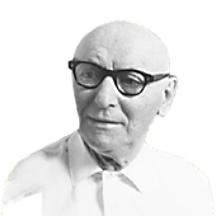
Bashevis-Singer Isaac
Isaac Bashevis Singer was born in 1904 into a rabbinic family in the town of Radzymin, Poland. He learned in a “cheder” and “yeshiva” before studying in the “Tachkemoni” seminar in Warsaw. From 1923 until 1933, he worked as a translator and proofreader for the Polish Yiddish periodical, “Literarishe Bleter”.
In 1935, Singer emigrated to the United States where he wrote literary criticism, essays, books and stories and made a name for himself in Yiddish literary circles. Among his most famous works are “The Family Moskat” and “The Magician of Lublin”.
Isaac Bashevis Singer was awarded the Nobel Prize for literature in 1978 “for his impassioned narrative art, which, with roots in a Polish Jewish cultural tradition, brings universal human conditions to life.”
In his books, Bashevis-Singer portrayed the life of Jews in Poland after the 1648-49 massacres and Jewish life in Warsaw before the holocaust. Some of his books and stories have been adapted for films and television.
Bashevis-Singer was a master storyteller, who drew his readers into a magical world of ghosts and spirits, temptations and desires, dreams and secret passions. He portrayed the provocative and unconventional aspects of life in the small Jewish town, the “shtettel”.
When he was asked why he continued to write in a so-called dead language, he replied, “I am sure that millions of Yiddish-speaking corpses will rise from their graves one day, and their first question will be: Is there any new book in Yiddish to read?
Isaac Bashevis Singer passed away in 1991.
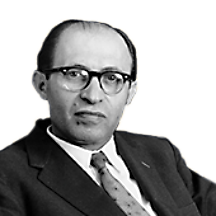
Begin Menachem
Menachem Begin was born in 1913, in Brest-Litovsk, Belarus. He was educated in a traditional-national atmosphere, studied Law at Warsaw University and commenced his public activity at an early age, in the framework of the Zionist-national youth movement, “Beitar”. In 1939, he was chosen as the leader of Beitar in Poland and fulfilled an active role in organizing Aliyah (the immigration) to Israel.
In 1941, Menachem Begin was sentenced to 8 years imprisonment in a Siberian labor camp due to his Zionist activity. However, by the end of that year he was released from prison and joined General Anders’ Polish Army, which arrived in Eretz Israel in May 1942.
In 1943, Menachem Begin took command of the national military organization, the “Irgun” – Beitar Movement’s military wing, and in 1944 declared general rebellion against British rule in Eretz Israel. The rebellion included daring actions against the British, including breaking into Acre Prison and bombing the King David Hotel in Jerusalem which served as the British chief headquarters.
Upon the establishment the State of Israel in 1948, Begin created the Herut Party and was found to be an outstanding parliamentary figure who, for many years, lead the opposition to the Israeli Government. In 1977, Menachem Begin was elected as the seventh Prime Minister of Israel.
The greatest achievement of the Government headed by him was the signing of the peace treaty with Egypt, achieved following the visit to Jerusalem of the Egyptian President, Anwar-el-Sadat. In 1978, Menachem Begin was awarded the Nobel Peace Prize together with Sadat, by virtue of this historic peace treaty.
In August 1983, in the midst of the Lebanon War, Menachem Begin resigned from his position as Prime Minister. He secluded himself in his home, refusing to give any reasons for his resignation. Since his death, in March 1992, his secret has remained a mystery.
Menachem Begin was a sharp witted orator who knew how to excite the public with his enthusiasm and stirring speeches. Throughout his life, he was of the opinion that the world should bear responsibility for the suffering of the Jewish people, as he has deduced from the terrible lesson of the holocaust. His struggle for “Jewish power” emanated from this outlook, which he justified by saying: “Not by right of force, but by force of right”.
Menachem Begin was known for his great affection for Eretz Israel and his concern for the Jewish people. He was a humanist and peace loving person, a wise and modest leader, who remained loyal to his convictions.
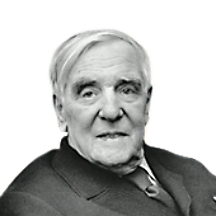
kapitsa Pyotr
Pyotr Kapitsa was born in Russia in 1894.
He received the 1978 Nobel prize in physics “For his inventions and discoveries in the area of low temperature physics.”
Pyotr Kapitsa passed away in 1984.
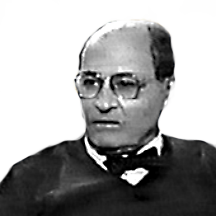
Nathans Daniel
Daniel Nathans was born in 1928 in the State of Delaware. He received his medical degree in 1959 from Washington University in St. Louis. In 1962, he joined the staff of Johns Hopkins University, where he became head of the microbiology department in 1967.
Daniel Nathans, Werner Arber and Hamilton Smith were awarded the 1978 Nobel Prize in Medicine or Physiology for “the discovery of restriction enzymes” and their application to the study of genome structure and for purposes of genetic engineering.
Daniel Nathans was the first to apply these enzymes towards the study of gene organization and the sequence of genes in the chromosome. However, the biggest breakthrough in the application of restrictive enzymes was their use in isolating specific genes and linking them to a bacterial or viral DNA molecule, producing recombinant DNA.
This revolutionary procedure has made it possible to produce the large quantities of enzymes and hormones, like human insulin, that are needed for medical treatment. The basic fundamentals of this research were rapidly translated into many vital uses that had not even been imagined several years prior to Nathans’ work.
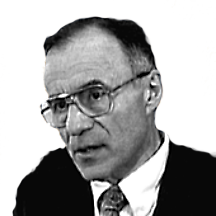
Penzias Arno
Arno Penzias was born in 1933 in Munich, Germany. In 1939 his family emigrated to the United States.
Arno Penzias was awarded the Nobel prize for physics in 1978, Together with Robert Wilson, “for their discovery of cosmic background radiation”, the echoes of the creation of the universe in the `big bang’, eighteen billion years ago.
Penzias’ discoveries constituted an empirical confirmation of the ‘big bang’ theory and turned it into the central model for describing the history of the universe.
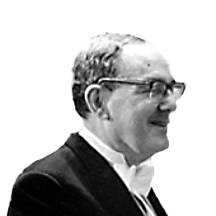
Simon Herbert
Herbert Simon was born in the United States in 1916.
He was awarded the Nobel prize for economics in 1978, “for his research in the field of the decision-making processes in economic organizations.”

free text
Select a Nobel category:
- Chemistry
- Economics
- Literature
- Medicine
- Peace
- Physics
Select first letter of winner's name:
- A
- B
- C
- D
- E
- F
- G
- H
- I
- J
- K
- L
- M
- N
- O
- P
- Q
- R
- S
- T
- U
- V
- W
- X
- Y
- Z
Search Results
Found 0 Results
No search results

region on map
